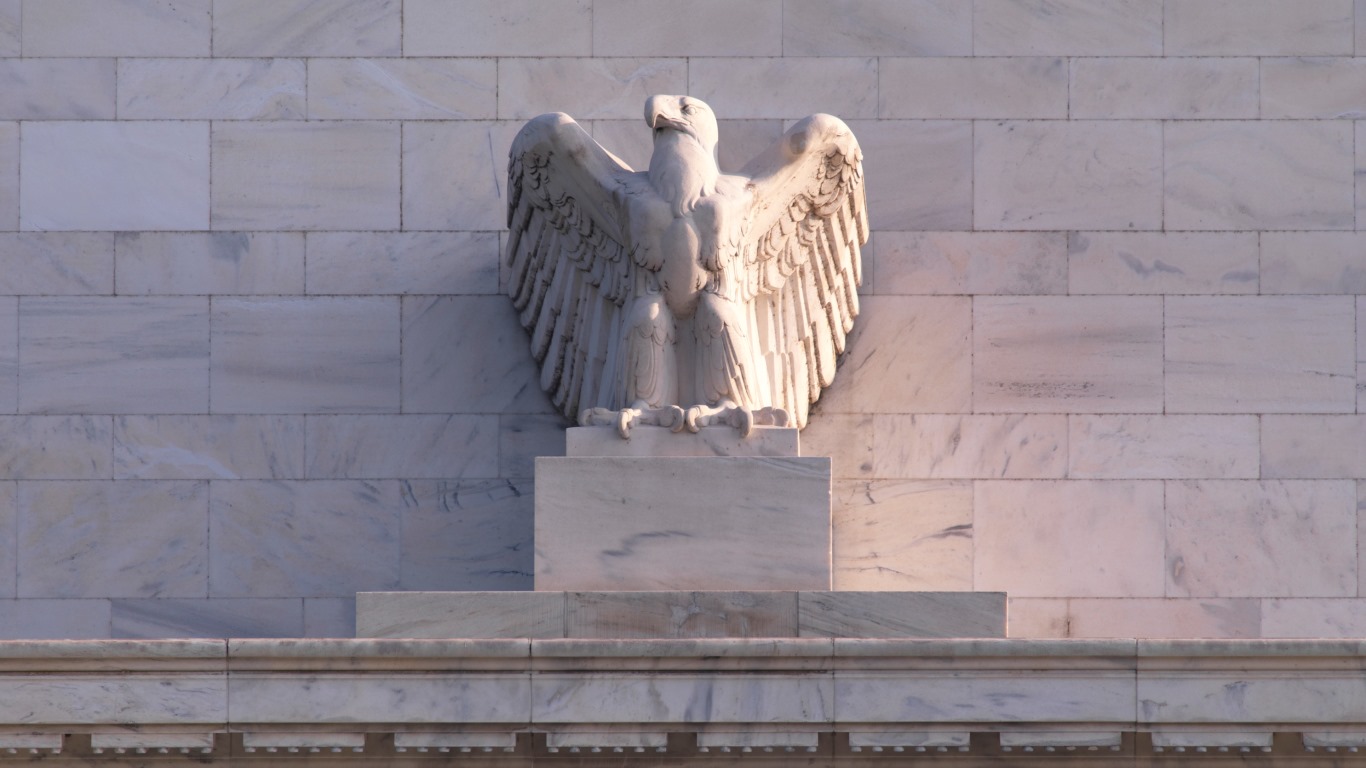Economy
Coronavirus and Oil War Shock: 6 New Ways the Fed and Government Can Support the Economy

Published:
Last Updated:

The economic fallout from the COVID-19 outbreak now feels like a pandemic, and the economy just took another kick in its face as Russia and Saudi Arabia just went into a deep oil price war. The combined result is an economy that is going to feel like it’s entering into a recession whether or not one is formally declared. Long-term U.S. Treasury yields just hit all-time lows, and the price drop of gasoline may be so rapid that the bogeyman of deflation is coming back into play. The stock market went from all-time highs as recently as February into correction mode (−10%) and is now flirting with the 20% drop that would constitute a bear market.
The U.S. Federal Reserve (Fed) issued an emergency interest rate cut just last week, and the markets hardly even gave it any notice. One of the biggest concerns beyond actually catching the coronavirus is that there may be somewhat limited tools that the governments and central banks actually can take to keep their economies from falling back into a recession. Central banks already have cut rates so low that Europe and Japan now have negative interest rates, and there are fears that the major slowing or shut-in that was seen in China could occur in the United States and elsewhere.
The writing on the wall is now loud and clear that economic risks are rising. Whether it is the U.S. government, the Fed, the Treasury, or other entities, there are at least some tools that could be used to offset some fears of a pandemic and some of the impact of the oil and commodities markets.
The number of coronavirus has increased in South Korea, Japan, Iran, Italy, other parts of the Middle East and elsewhere. The United States has started to see reports of more widespread outbreaks, and there are concerns that a very large portion of the U.S. workforce will have to work from home. Now throw in the added pressure that could come from potential school closures and factories and offices shutting down entirely. The Centers for Disease Control and Prevention (CDC) previously warned that a more widespread outbreak was “when rather than if.”
24/7 Wall St. wanted to offer its readers a list of tools and strategies that the government and agencies could take to help minimize the economic impact. The Federal Open Market Committee (FOMC) already issued an emergency interest rate cut, and the markets are pricing in even more rate cuts. These may not really work that much. After all, does a lower interest rate make consumers feel more confident they won’t get sick by going out? Will it make businesses start flying their workers to conferences and meetings?
The public should not expect that major economic supportive actions are coming just because the stock market is down. The larger issue is whether the lack of retail demand and the falling gas and oil prices would help trigger a deflationary and contracting economy. Still, the U.S. Federal Reserve and central banks from China, Japan, Korea, Europe and elsewhere should at least be considering what sort of other non-traditional accommodative actions they can take and are willing to take beyond cutting interest rates and adding extra liquidity.
Lessons of the Great Recession, terrorist attacks, natural disasters and other events in the past may hold some lessons for what central banks and the U.S. government could do beyond traditional interest rate cuts to stimulate the economy, even if the coronavirus becomes much more widespread and the oil price war lingers. The public should also understand that some of these actions may not exactly be legal or constitutional, but that doesn’t mean they are criminal acts. In times of need, particularly in a life-threatening crisis combined with an economic crisis, the strategies in the playbooks of the past just may not be enough to avoid deflation, a recession or major layoffs.
During times of natural disasters like hurricanes and storms, the private sector on its own has allowed for loan relief. The government can backstop these efforts so that companies do not have to feel the full brunt of them, and that is not just the U.S. government. There had been reports that the White House was considering some tax assistance for the battered airline industry just last week.
The U.S. Treasury has allowed for longer delays in tax filings and has delayed some payment dates and other penalties for those people who have been in areas affected by natural disasters. The U.S. tax filing date of April 15 is just a month and a half away, and if the coronavirus does expand into an outbreak around multiple geographies in the United States, the Treasury could allow for delays.
Thank you for reading! Have some feedback for us?
Contact the 24/7 Wall St. editorial team.